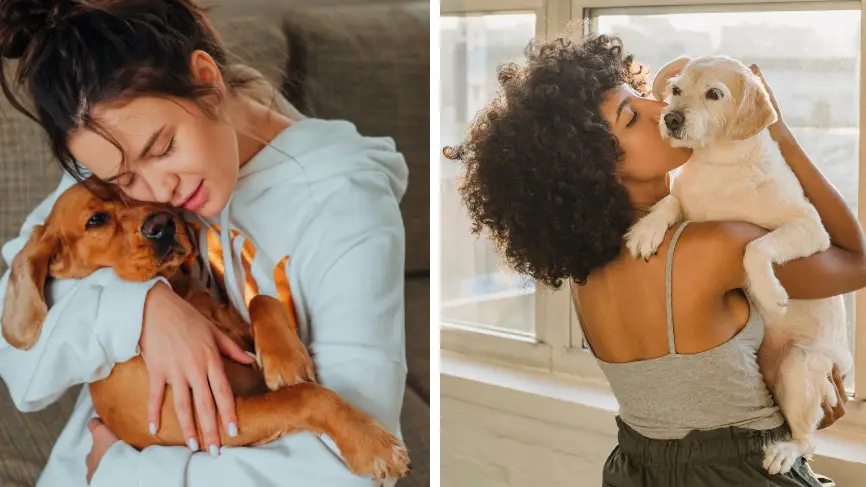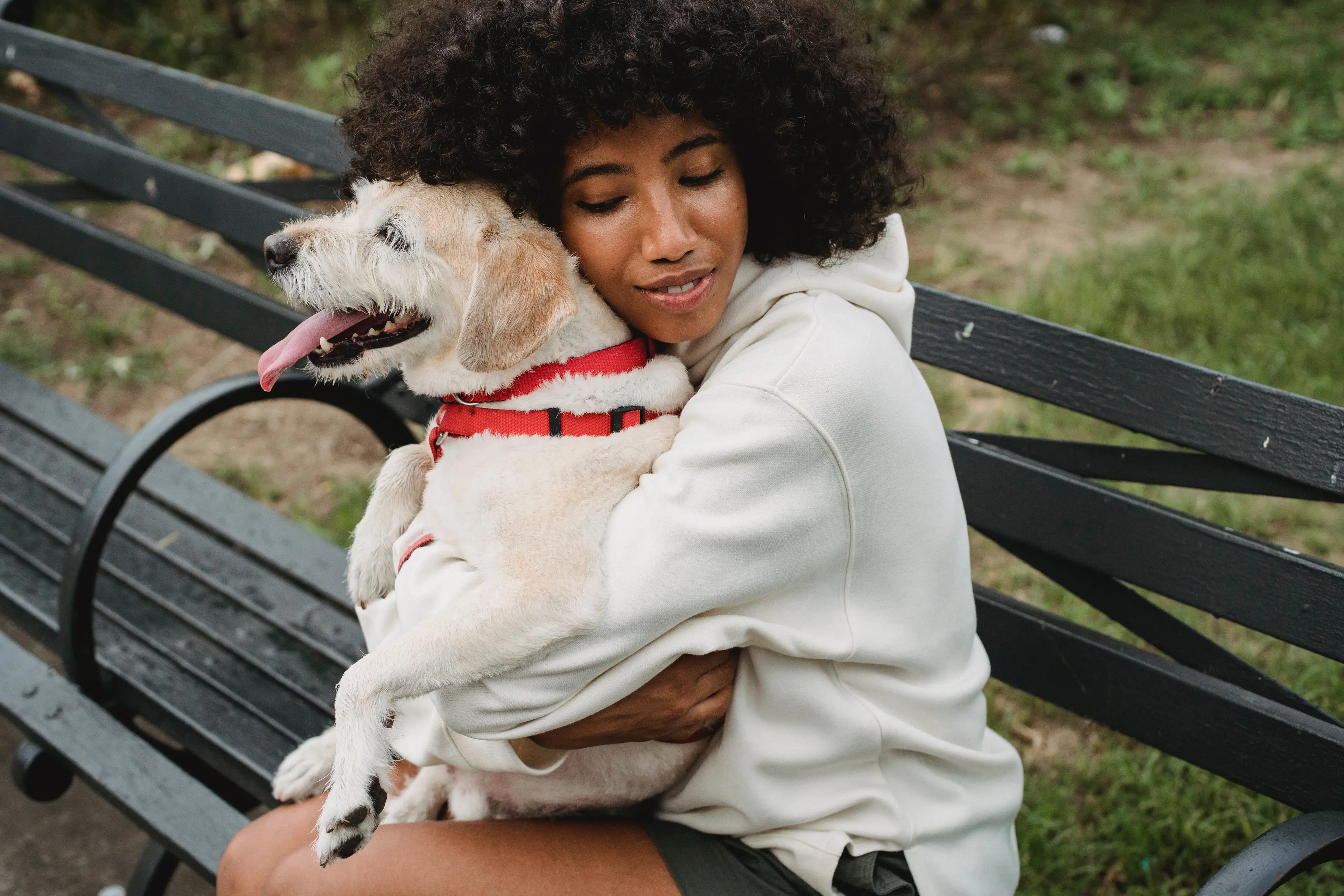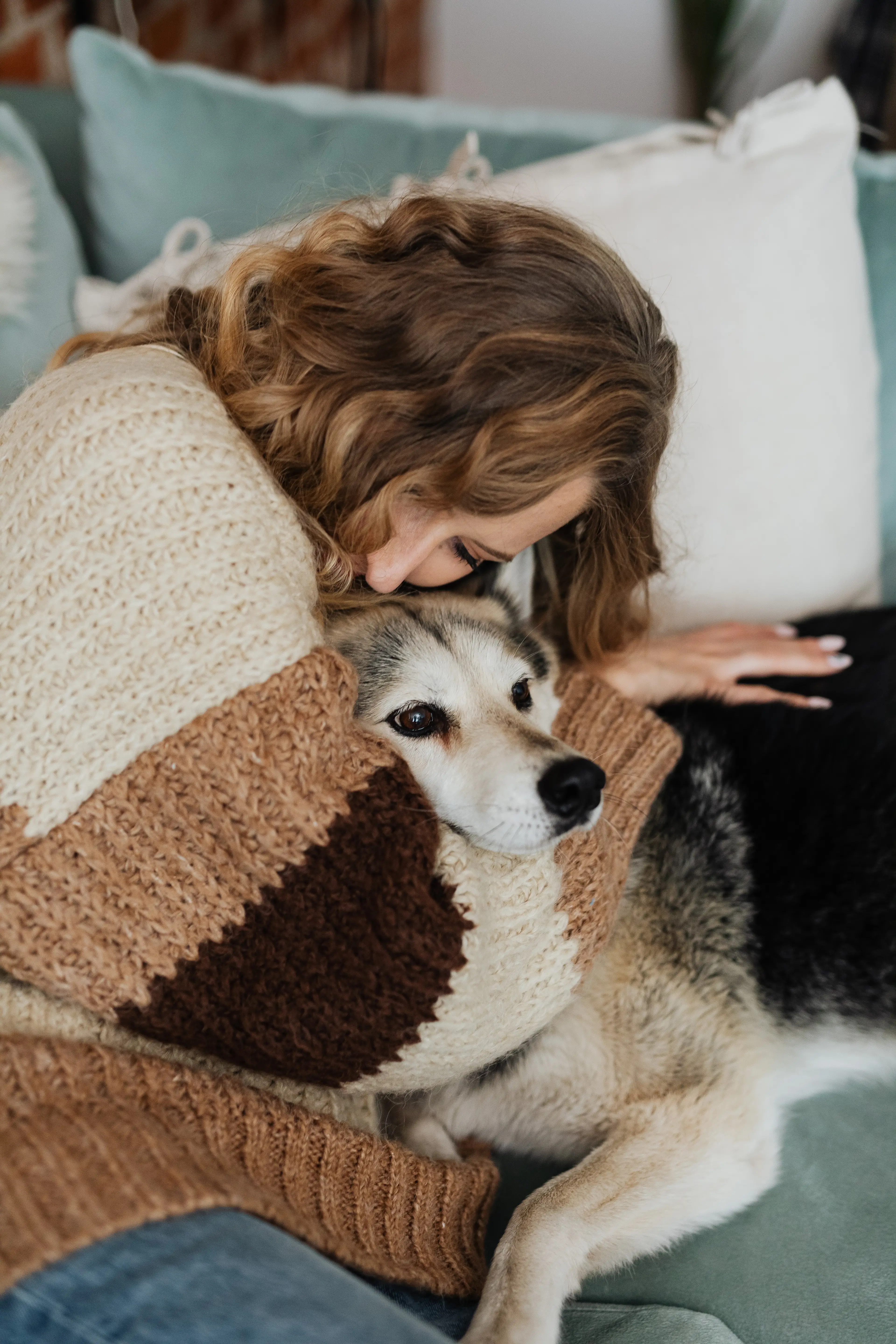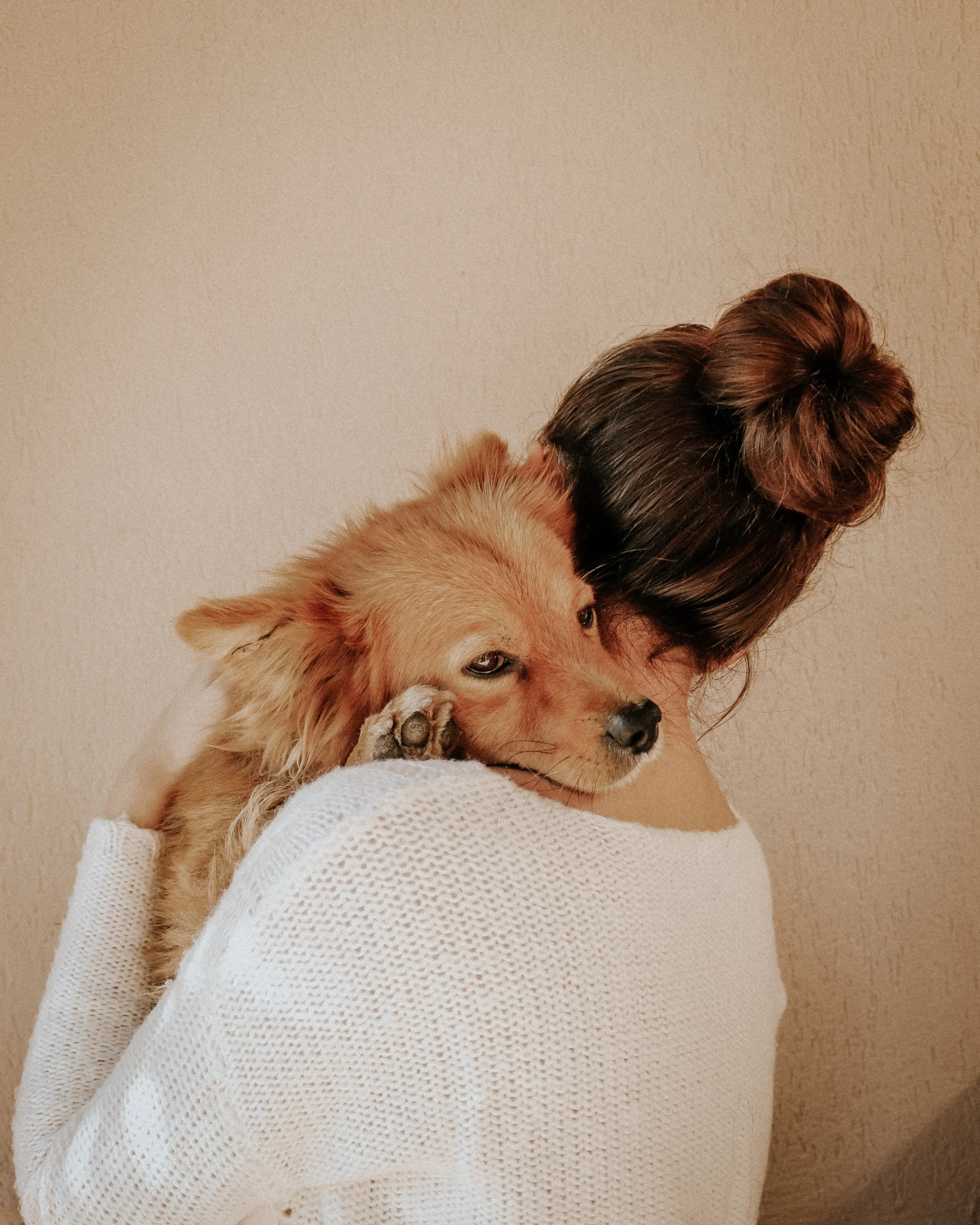
As much as we all love giving our four-legged pals a big hug every time we see them, a vet has explained why that may not be the best idea.
A hug is a gesture of affection between humans and it should come as no surprise that dog owners want to share the same warmth and love with their beloved pets.
However, for a canine, a hug does not always symbolise the same type of affection and it may actually lead to humans unintentionally causing their fur baby to feel stressed out and in severe cases, this could potentially lead to biting.

Advert
Psychologist Stanley Coren has said that ‘in times of stress or threat’ a dog’s first action of defence is its ability to run away.
By depriving the dog of its ability to run away by giving them hugs and therefore immobilising them, the stress level can increase which may lead to a bite.
The signs of a stressed dog are not always as obvious as baring their teeth and may be subtle, such as the movement of their eyes and ears.
Writing in Psychology Today, Coren recalled an incident when a woman hugged his six-month-old puppy which led to the stressed pup exhibiting some of the tell-tale signs of anxiety, including turning his head away to break eye contact with the human.

When Coren told the woman not to hug dogs because they don’t like it, she apparently looked at him with an expression of ‘disbelief’ as she argued that hugging children is good for their brain development.
Surprisingly, Coren had to explain to the woman that human children are very different to puppies, even if our pets are like our children.
“Dogs are technically cursorial animals, which is a term that indicates that they are designed for swift running,” Coren wrote in Psychology Today.
“That implies that in times of stress or threat, the first line of defence that a dog uses is not his teeth, but rather his ability to run away.
"Behaviourists believe that depriving a dog of that course of action by immobilising him with a hug can increase his stress level and, if the dog's anxiety becomes significantly intense, he may bite."

Coren writes that some of the more subtle signs of a dog experiencing ‘anxiety’ includes: “When the dog turns his head away from whatever is bothering or worrying him, sometimes also closing his eyes, at least partially.
"Alternatively, dogs will often show what is commonly called a 'half-moon eye' or 'whale eye' which is where you can see the white portion of the eyes at the corner or the rim.
"One common visible sign of stress or anxiety is when the dog's ears are lowered or slicked against the side of his head. Lip licking or licking a person's face can also be signs of anxiety, as can yawning or raising one paw."
Lesson of the day - think twice about hugging your pooch!
